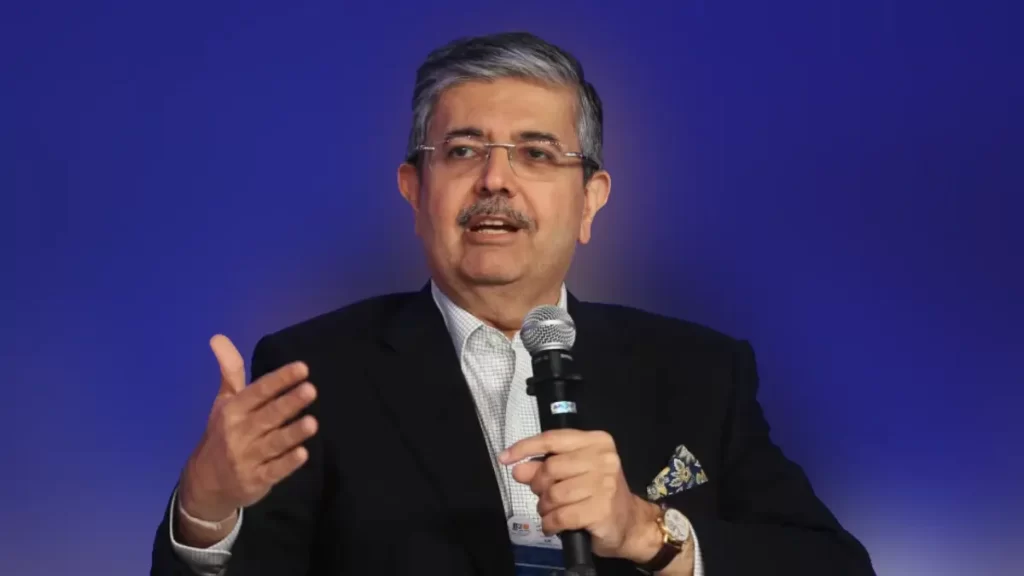Leading Banking and Finance expert Uday Kotak offers a financial guide that has the potential to make India a country with a $30 trillion economy by 2047. The financial model that he has advised can make the country the biggest economy in the future.
The finance minister of India Nirmala Sitaraman responded to Uday’s plan by saying ‘Thank you.’
Uday Kotak Makes a Strategy for Boosting the Economy
India has a global ranking as the fifth-largest economy in the year 2023. The Gross Domestic Product or GDP of the country is more than $3.6 trillion. Uday has given suggestions on the strategy that India should adopt to attain the goal of becoming the biggest economy. He has emphasised that if India keeps improving its economy like this and keeps on track, it is sure to become a major economy by the time 2047 arrives.
Uday Posts the Plan as a Part of Year-End Musings on X
Uday has posted on former Twitter or X about this. The post is a part of the ‘Year-End Musings’ that he has posted on social media. He said that the nation will be a huge 30 trillion-dollar economy by 2047. This amount is greater than the GDP of the USA presently. He further said that India should aim to have 9% growth per annum to become a big economy.
Kotak has given seven suggestions or recommendations that will help India become a 30 trillion-dollar economy. He is a senior banker in India who has founded the leading Kotak Mahindra Bank. Uday holds the position of its director currently.
India will be celebrating its 100 years of independence in the year 2047. Kotak’s post and recommendations are very important given this. They will help India boost its economy and think for the future.
Seven Point Plan of Uday Kotak
The seven suggestions that Kotak has provided for India’s growth are as follows:
- Avoiding Bubbles via policy, regulation, education, and supply of quality paper Also, the businesses need to obtain investment at less amount of capital that is to be used for productive purposes.
- There should not be any tax arbitrage in debt. It will be useless unless there is growth and progress in the debt markets.
- There should be a re-analysis of dividend double taxation.
- Financial markets will be harmed by low-cost leverage via derivatives. This needs careful analysis and reform.
- Big-size businesses and corporations should avoid banks and consider moving their capital to the debt and equity market. In the future, the banks are expected to distribute more capital for corporate debt rather than people storing their money in banks. Banks will need to increase their reach in medium-sized corporations, MSMEs, and individuals.
- India should not adopt a policy of retrospective tax. In addition, it should avoid a regulatory regime.
- Acquisition financing should be given top priority and urgent focus. Apart from this, the IBC/NCLT process also needs immediate attention.

